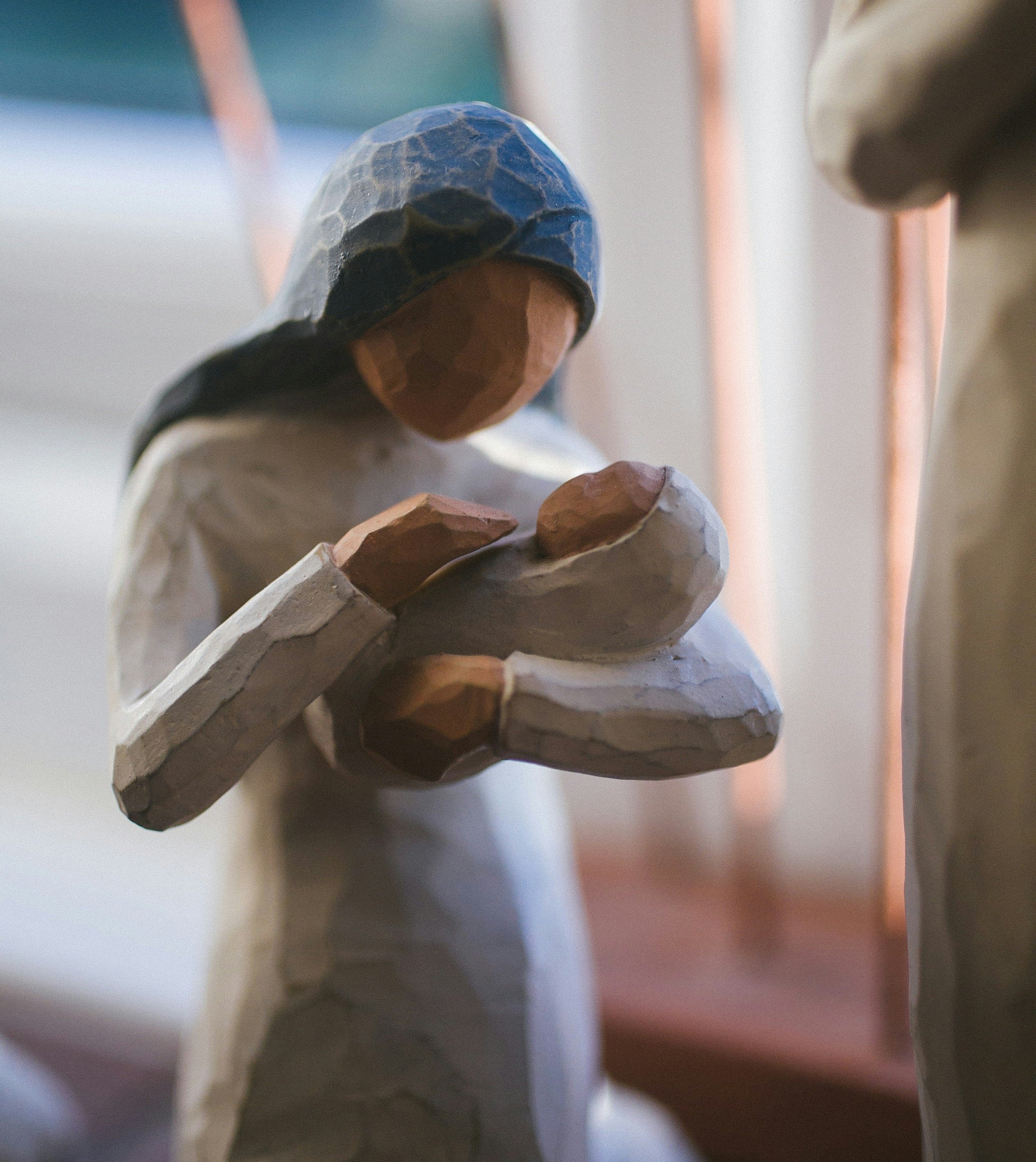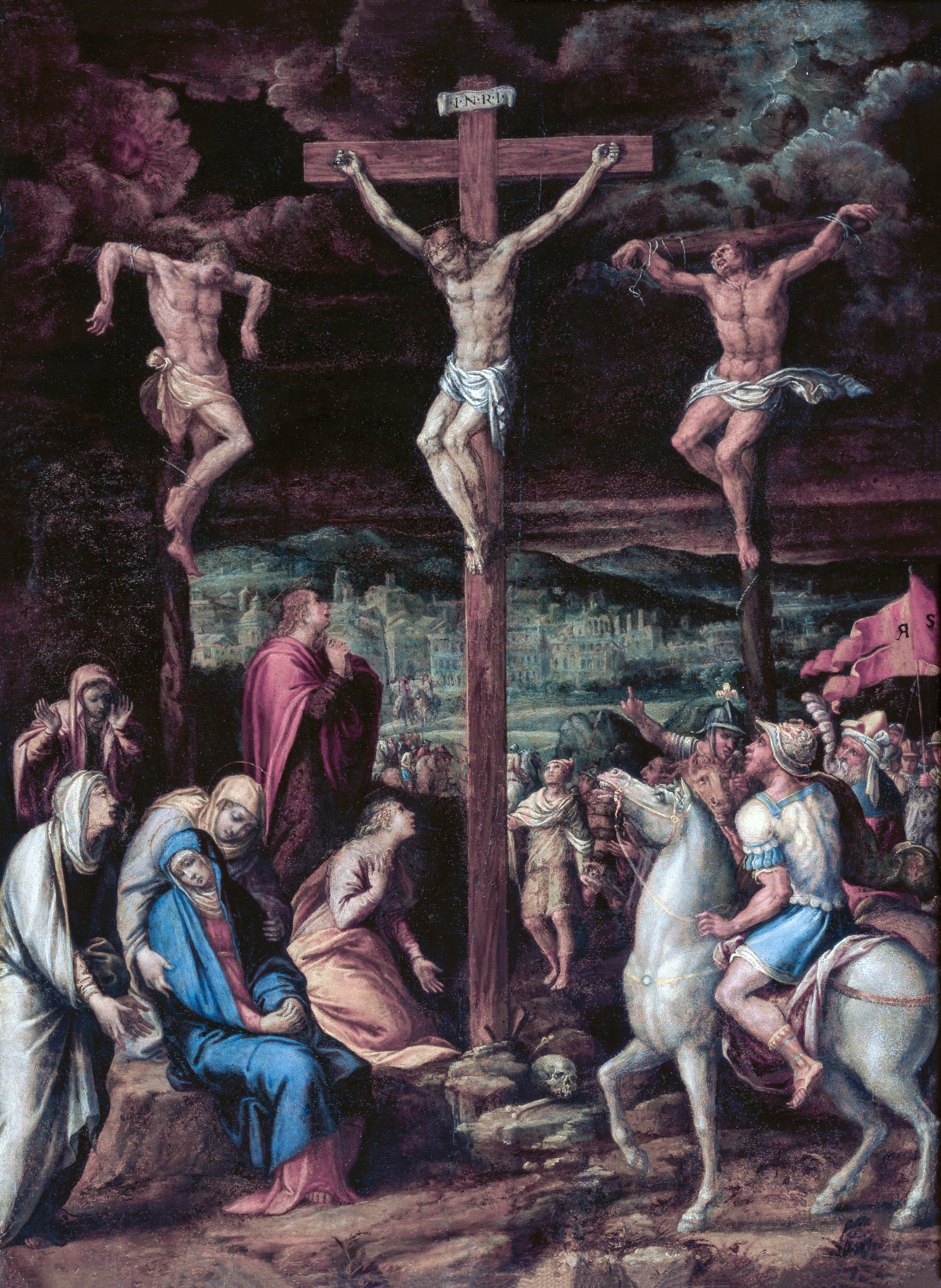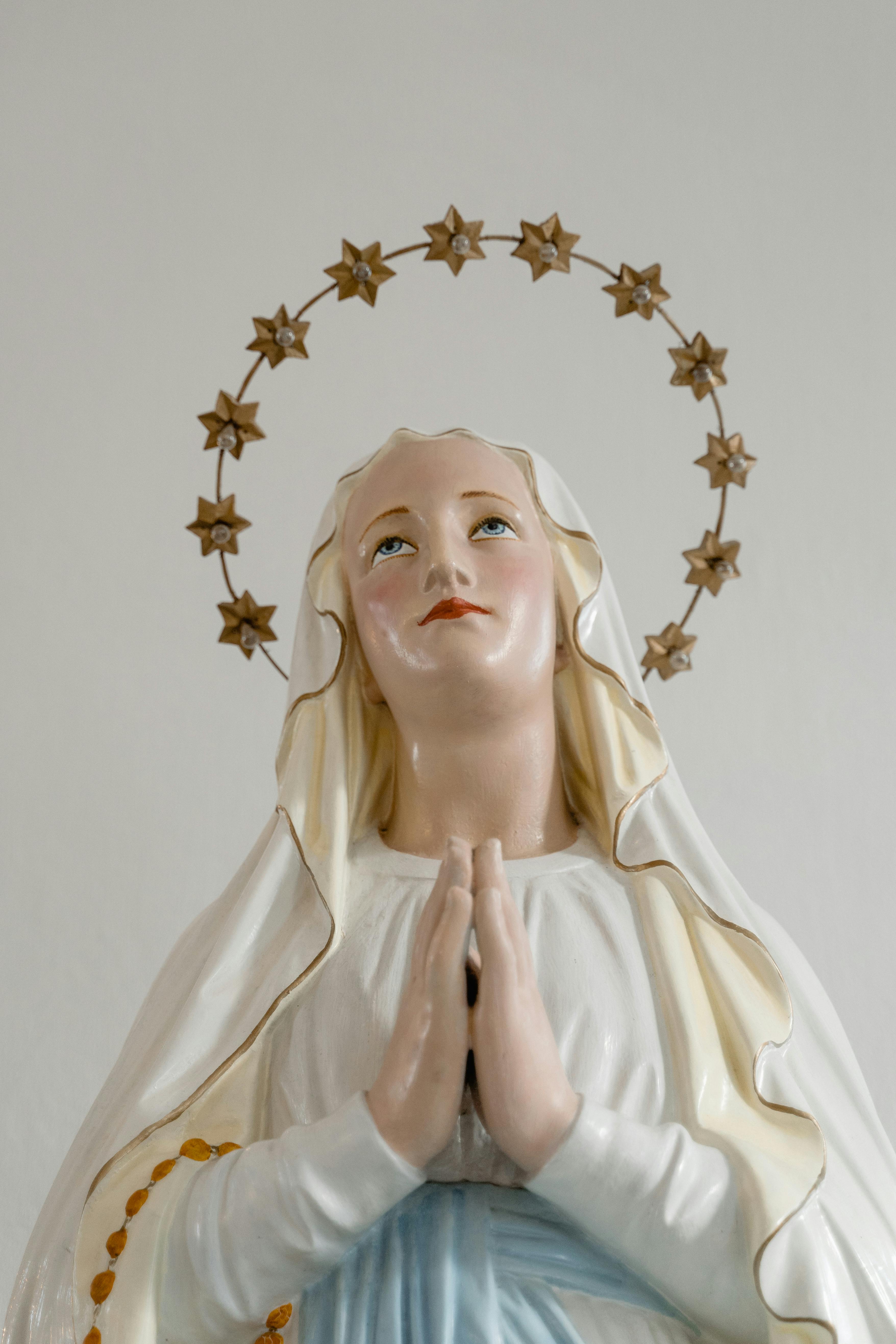I have three plants. One is thriving because it is low-maintenance enough for me and in a decently sunny room. My cactus is not dying, but it is not growing either, because I only remember to water it every few months. My temperamental peace lily prefers a warmer and more humid atmosphere and gets a bit crunchy during the winter months. So do I, as a matter of fact.
For these plants, health, growth, and maturation require some work. For us human beings, it also requires a great deal of work which we generally don’t want to take on. In today’s parable, Jesus exposes our human inclinations toward laziness, pride, and anxiety that leave us living on the surface level. He then tells us everything we need to know regarding this matter: “But as for the seed that fell on rich soil, they are the ones who, when they have heard the word, embrace it with a generous and good heart, and bear fruit through perseverance.”
Growth in the spiritual life isn’t our work, it’s God’s. Our job is to listen to God with generosity and love for Him. This is the simple formula to becoming a “spiritual giant.” The key here is that there is no magic trick, rather, we are invited to be like Mary and receive God in good times and in bad, in sickness and in health, for better or for worse, etc. This is why Mary can be the bride of the Holy Spirit, because she receives her Beloved with generosity and is faithful to Him in all circumstances.
This is the rich soil of which Jesus speaks. Our saints today, Andrew Kim Taegon, Paul Chong Hasang, and Companions’ are additional witnesses of what rich soil looks like. They received the Word whole-heartedly, spread the Gospel, and persevered in their vows of fidelity, even unto death.
Instead of wasting energy mustering up all your strength, spinning your wheels, and trying to force growth in virtue and holiness, take a deep breath and remember: the Sower is sowing seeds in you. Don’t become discouraged by your weaknesses in spiritual endeavors, for He is the Creator of all things, and His word bears fruit. Your job is to let it happen.
Tengo tres plantas. Una prospera porque requiere poco mantenimiento y está en una habitación con bastante sol. Mi cactus no se muere, pero tampoco crece, porque solo me acuerdo de regarlo cada tres o cuatro meses. Mi caprichoso lirio de la paz prefiere un ambiente más cálido y húmedo y se vuelve un poco crujiente durante los meses de invierno. De hecho, yo también.
Para estas plantas, la salud, el crecimiento y la maduración requieren algo de trabajo. Para nosotros, los seres humanos, también requiere mucho trabajo que generalmente no queremos asumir. En la parábola de hoy, Jesús expone nuestras inclinaciones humanas hacia la pereza, el orgullo y la ansiedad, que nos hacen vivir en la superficie. Luego nos dice todo lo que necesitamos saber al respecto: “Lo que cayó en tierra buena representa a los que escuchan la palabra, la conservan en un corazón bueno y bien dispuesto, y dan fruto por su constancia”.
Crecer en la vida espiritual no es tarea nuestra, es obra de Dios. Nuestra labor es escuchar a Dios con generosidad y amor por Él. Esta es la fórmula sencilla para convertirse en un “gigante espiritual”. La clave es que no hay magia, sino que estamos invitados a ser como María y recibir a Dios en las buenas y en las malas, en la salud y en la enfermedad, en la prosperidad y en la adversidad, etc. Por eso María puede ser la esposa del Espíritu Santo, porque recibe a su Amado con generosidad y le es fiel en toda circunstancia.
Esta es la tierra fértil de la que habla Jesús. Los santos que celebramos hoy, Andrew Kim Taegon, Paul Chong Hasang y sus compañeros, son testigos adicionales de cómo es una tierra fértil. Recibieron la Palabra con todo el corazón, difundieron el Evangelio y perseveraron en sus votos de fidelidad, incluso hasta la muerte.
En lugar de malgastar energías reuniendo todas tus fuerzas, dando vueltas en círculos e intentando forzar el crecimiento en la virtud y santidad, respira profundo y recuerda: el Sembrador está sembrando semillas en ti. No te desanimes por tus debilidades en los esfuerzos espirituales, pues Él es el Creador de todas las cosas, y su palabra da fruto. Tu tarea es simplemente permitir que suceda.
 Former NPS Park Ranger, Catholic educator, and Youth Minister, Melissa Lucca now spends her days evangelizing family and neighbors as a stay-at-home mom. She holds an MA in Theology from the Augustine Institute and pursues personal study in her spare time. Melissa loves Ignatian Spirituality, Mother Mary, and rock climbing. If you don’t hear her and her kiddo laughing at home, then they are probably out on an adventure!
Former NPS Park Ranger, Catholic educator, and Youth Minister, Melissa Lucca now spends her days evangelizing family and neighbors as a stay-at-home mom. She holds an MA in Theology from the Augustine Institute and pursues personal study in her spare time. Melissa loves Ignatian Spirituality, Mother Mary, and rock climbing. If you don’t hear her and her kiddo laughing at home, then they are probably out on an adventure!
Feature Image Credit: Jonathan Kemper, unsplash.com/photos/green-and-black-frog-on-brown-soil-wzYc-_TIk8o
The views and opinions expressed in the Inspiration Daily blog are solely those of the original authors and contributors. These views and opinions do not necessarily represent those of Diocesan, the Diocesan staff, or other contributors to this blog.


 Deanna G. Bartalini, M.Ed.; M.P.A., is a certified spiritual director, writer, speaker and content creator. The
Deanna G. Bartalini, M.Ed.; M.P.A., is a certified spiritual director, writer, speaker and content creator. The 
 Mike Karpus is a regular guy. He grew up in Michigan’s Upper Peninsula, graduated from Michigan State University and works as an editor. He is married to a Catholic school principal, raised two daughters who became Catholic school teachers at points in their careers, and now relishes his two grandchildren, including the older one who is fascinated with learning about his faith. He also has served on a Catholic school board, a pastoral council and a parish stewardship committee. He currently is a lector at Mass, a Knight of Columbus, Adult Faith Formation Committee member and a board member of the local Habitat for Humanity organization. But mostly he’s a regular guy.
Mike Karpus is a regular guy. He grew up in Michigan’s Upper Peninsula, graduated from Michigan State University and works as an editor. He is married to a Catholic school principal, raised two daughters who became Catholic school teachers at points in their careers, and now relishes his two grandchildren, including the older one who is fascinated with learning about his faith. He also has served on a Catholic school board, a pastoral council and a parish stewardship committee. He currently is a lector at Mass, a Knight of Columbus, Adult Faith Formation Committee member and a board member of the local Habitat for Humanity organization. But mostly he’s a regular guy.
 Felix Urcia was born in Lima, Peru. He moved the U.S. to complete his college degree in Computer Science at Northern Kentucky University. He is passionate about his faith, his family, education and soccer. When he is not homeschooling and caring for his young children he enjoys personal programing projects and sports analysis. He and wife live in a small town in Western Michigan where they enjoy spending time with their five children.
Felix Urcia was born in Lima, Peru. He moved the U.S. to complete his college degree in Computer Science at Northern Kentucky University. He is passionate about his faith, his family, education and soccer. When he is not homeschooling and caring for his young children he enjoys personal programing projects and sports analysis. He and wife live in a small town in Western Michigan where they enjoy spending time with their five children.
 Hailing from Nashville, Catherine is a graduate of Christendom College with a lifelong passion for words. Her love of writing and her Catholic Faith continue to shape her as a freelance editor, copywriter, and (aspiring) novelist, where she pursues her passions for the love and greater glory of God.
Hailing from Nashville, Catherine is a graduate of Christendom College with a lifelong passion for words. Her love of writing and her Catholic Faith continue to shape her as a freelance editor, copywriter, and (aspiring) novelist, where she pursues her passions for the love and greater glory of God.
 Dr. Alexis Dallara-Marsh is a board-certified neurologist who practices in Bergen County, NJ. She is a wife to her best friend, Akeem, and a mother of four little ones on Earth and two others in heaven above.
Dr. Alexis Dallara-Marsh is a board-certified neurologist who practices in Bergen County, NJ. She is a wife to her best friend, Akeem, and a mother of four little ones on Earth and two others in heaven above.
 Nicole Berlucchi is a faith and family blogger (
Nicole Berlucchi is a faith and family blogger (
 Colleen Orchanian is a podcaster, blogger, and spiritual director who desires to help others have a more profound encounter with God. She is the author of three books: Nearer My God to Thee, Times of Grace, and Lingering with God. Her podcast is Food for Thought (Spiritually Speaking). You can learn more at
Colleen Orchanian is a podcaster, blogger, and spiritual director who desires to help others have a more profound encounter with God. She is the author of three books: Nearer My God to Thee, Times of Grace, and Lingering with God. Her podcast is Food for Thought (Spiritually Speaking). You can learn more at 
 Lily is a Michigan native and cradle Catholic who has spent most of her life exploring her own reasons to embrace her faith fully. She attended Franciscan University of Steubenville, where she discovered the beauty of her personal relationship with Christ and the Church. After college, she worked in Montessori Education for three years and recently transitioned to nannying. She was recently married and spends most of her time reading, and enjoying her dog and family!
Lily is a Michigan native and cradle Catholic who has spent most of her life exploring her own reasons to embrace her faith fully. She attended Franciscan University of Steubenville, where she discovered the beauty of her personal relationship with Christ and the Church. After college, she worked in Montessori Education for three years and recently transitioned to nannying. She was recently married and spends most of her time reading, and enjoying her dog and family!
 Ben Hooper is originally from Maryland, having been adopted from Korea and growing up in the Catholic faith. He went to Franciscan University to dive deeper into his faith and eventually graduated with a degree in Business Management. He loves musical theater, sports, spending time with his wife Lily and their dog Kolbe.
Ben Hooper is originally from Maryland, having been adopted from Korea and growing up in the Catholic faith. He went to Franciscan University to dive deeper into his faith and eventually graduated with a degree in Business Management. He loves musical theater, sports, spending time with his wife Lily and their dog Kolbe.